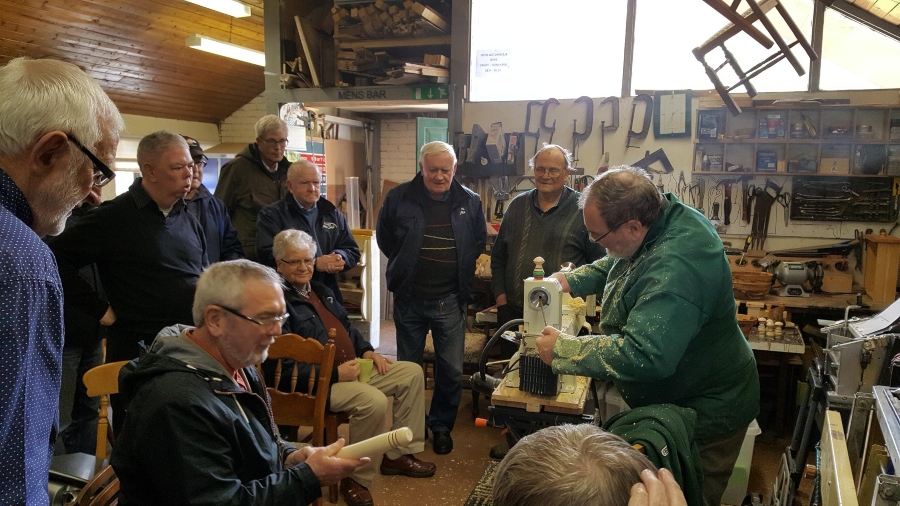Ekaterina Voznesenskaia looks at the power of attitude and how it’s an inner architect shaped from our past, building our presence, and leading our future.
Over the last three months, due to the Covid-19 lockdown, we were all forced to make changes to our everyday lives and had to learn how to overcome challenges and uncertainty. The global pandemic showed us that having the right attitude, to yourself and to others, is one of the most important character traits one can possess. What is the right attitude? Why is it so important?
If you look at the sea level, our knowledge and skills, our experience and expertise lie on the surface, above the sea. It is known to others, it is something we are willing to reveal, eager to show. It is visible, evident and transparent. It is our external life including relationships with other people, our professional progress, our experience and skills, management, and leadership. What lies deep beneath the sea is unknown, invisible to others. It is our values, beliefs, our feelings and emotions. The invisible part is our attitude.
Attitude is the way we look at life, it is the way we choose to see and respond to events, situations, people and ourselves. Our attitude is not something that happens to us, it is not something that we are born with. We choose our attitude. In this fast paced, constantly changing world, we keep moving, focusing on our career goals, setting high expectations, and making ambitious plans for the future. In today’s competitive life, our main focus is primarily on ourselves, our progress, our growth, development and success. And we try move as fast as we can to reach our goal. Significantly, it is our relationships with other people and how we manage to build these relationships determine our success. It is our attitude that matters.
“The greatest discovery of all time is that a person can change his future by merely changing his attitude” – Oprah Winfrey
Attitude is a powerful inner architect shaped from our past, building our presence, and leading our future. Our attitude has a profound impact on how we communicate and collaborate with others, on how we perform our daily tasks and responsibilities, on how we contribute to the culture of our work environment and on how we lead others. “The attitude, and the mind, is where all starts,” said John Smith. Our thoughts and beliefs, our feelings and emotions, our opinion and our motives all constitute attitude. When we think about the meaning of attitude, just imagine how powerful, comprehensive, and how deep it is. It might seem simple to be friendly and supportive, and how difficult sometimes it is to choose the right attitude at the very right moment. As it is not only about being nice and friendly.
“Try not to become man of success, but rather try to become man of value” – Albert Einstein
There was man who was selling balloons at a market fair. There were balloons of many different colours; yellow, red, green, orange and blue. He loved his work and he loved children, and whenever he released a helium-filled balloon into the air, the children would be all running to see it. The kids would come up again and again, as the man was always happy to see them, he always greeted them with his warm smile. His eyes were always smiling. The children felt his sincere kindness and positive energy. They all wanted to buy a balloon, and his sales went up. One day the man felt somebody pulled him by the sleeve. He turned around and saw a little girl who asked; “If you release a black balloon, would it also fly?” The man was deeply touched by this question and replied; “My child, it is not the colour of the balloon, it is what is inside that makes it go up.”
“It is what lies inside of you what matters” – Sarah J. Maas
What is your attitude to other people? When we remember a good attitude, it is the attitude with care and support, empathy and compassion, gratitude and respect. It is the attitude with friendliness and sincere kindness that’s filled with warm emotions. When we hear somebody tell us about their challenges at work or family problems, when they share with us their fears and doubts, share with us their pain, they strongly need our support and empathy. They are not expecting us to change them, argue, or judge saying that they are right or wrong. They are not looking for advice. “I do not ask the wounded person how he feels, I myself become the wounded person,” said Walt Whitman. We can simply sit in silence showing our deep understanding of the other person’s feelings, and they will feel our sincerity and support.
“Empathy is a powerful thing. There is no right way or wrong way to do it. It is simply listening, withholding judgement, emotionally connecting and communicating that incredibly healing the message. You are not alone” – Brené Brown
According to Jamil Zaki, a professor of psychology at Stanford University, empathy is not a trait, instead, it is a skill, and we all grow empathy on purpose. Jamil Zaki and his colleague conducted research to find out if this really is true. They had people read articles suggesting that empathy was either a trait which is relatively stable over time, or that it is a skill that is changeable and can be developed. Then they took an empathy obstacle course full of situations that make caring tough. They found that when people believed empathy was a skill, they worked harder on it. They spent more time listening to the struggle of someone of a different race. They spent more energy trying to understand the perspective of political outsiders. The people taking part in this study stretched their empathy past its typical boundaries, because they were empowered to develop and leverage this skill. When we practice engaging over and over again, we are building empathy that is deeper, broader and more muscular.
“A gentle word, a kind look, a good-natured smile can work wonders and accomplish miracles” – William Hazlitt
It might sound surprising but for quite a long period of time in my childhood I rarely smiled. On most of my child photos I look very serious, concentrated and thoughtful, as if I had something to say that I did not dare to. Until a certain age I was afraid of making friends, and when being in a nursery school or in a playground, I was expecting somebody to come and start talking to me first. I was looking at happy kids running around and playing together, and I incredibly wished to join them. But I could not simply smile, come to them and say “Hi”, as I was afraid. I was afraid that they were not probably willing to meet me, would not accept me, would not like me, and I kept standing full of fear and doubts. You might also remember the moments when you had to make some big change in your life, take a step in a new direction, and you felt fear and uncertainty.
“They always say time changes things, but you actually have to change them yourself” – Andy Warhol
It took me quite a long period of my life to realise that until I make a first step myself, nothing would change. Until I overcome my fears and take courage to step forward, I will keep staying and waiting alone. It was not easy for me to go through inner fears, and doubts, times of uncertainty and loneliness. I made a first step as a kid, I started learning to make friends, be open to people and not to be afraid of being myself. Significantly, after understanding myself better, I became more open and receptive to other people’s feelings and emotions. And at some stage I have understood something very important. When we accept ourselves, when we have no doubts in our feelings, our thoughts and our decisions, we are no more afraid of making a step into the world and be open to people. We keep going confidently, meeting new people, greeting them with a sincere positive smile and kindness, showing them our good intention, our good attitude.
When our inner light is shining, we are bringing our positive emotions and warm feelings to other people. We are willing to be caring, loving and empathetic to the world. Attitude starts within us. When we change inside, the outside world starts changing.
Written by Ekaterina Voznesenskaia
Published: 24 June, 2020
-
Bank of Ireland is welcoming new customers every day – funding investments, working capital and expansions across multiple sectors. To learn more, click here
-
Listen to the ThinkBusiness Podcast for business insights and inspiration. All episodes are here. You can also listen to the Podcast on:
-
Spotify
-
SoundCloud
-
Apple







